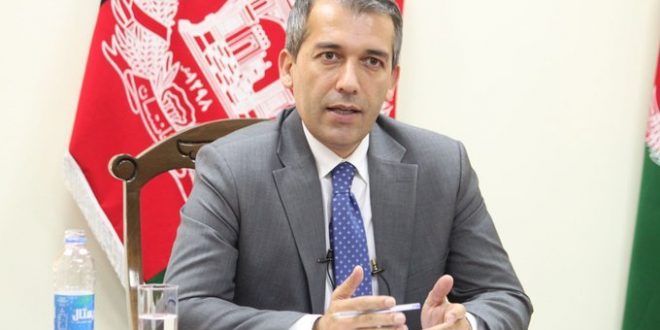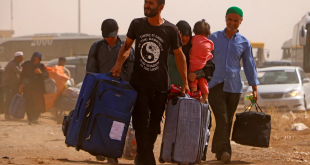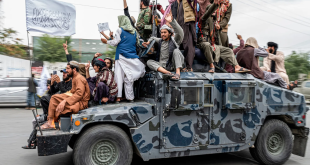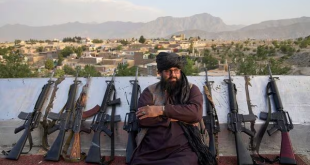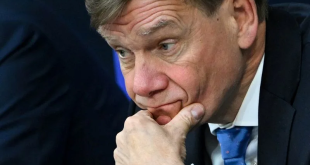Kabul is struggling to salvage fledgling peace talks as Taliban’s escalating violence is entrenching fears of collapse of the intra-Afghan dialogue and a reversal of rapprochement with the rebels
AT News
KABUL: Afghan officials scrambled on Monday to keep fragile peace negotiations from falling apart in the wake of the Taliban’s growing belligerence and surging attacks which violated their February peace accord with the US.
A presidential spokesman, Seddiq Seddiqi, has said that Afghanistan will continue the negotiations with the Taliban and that the escalating violence will not stymie the government’s struggles for peace.
Siddiq Siddiqi said there were no plans for the government negotiating team to return from Qatar. “Our delegation is in Qatar. There is no plan to bring them back, because we want peace,” he said.
Kabul is struggling to salvage fledgling peace talks as Taliban’s escalating violence is entrenching fears of collapse of the intra-Afghan dialogue and a reversal of rapprochement with the rebels
“The Afghan government and our people made a courageous decision to release 6,100 dangerous Taliban prisoners that is unprecedented in any peace deal n the history; to accelerate the peace process and force the Taliban to end the war and establish a dignified and lasting peace,” he said.
The recent Taliban attacks in Helmand and Ghor provinces show that the Taliban have overlooked this generosity and sincerity of our government and our people, they are continuing their senseless war and intensified their brutal and terrorist attacks on our people.
The remarks came as Nader Naderi, a member of the government’s negotiating team, warned that if the situation continued like this, the board would be double thinking whether to continue the talks.
Recent attacks by the Taliban have provoked global reactions, with the group accused of violating its agreement with the United States.
Zalmay Khalilzad said it was “very dangerous to believe that violence must be escalated” in order to gain a foothold at the negotiating table. “We have to stick to the wording and content of what was negotiated and recently reached,” he said.
“Unfounded charges of violations and inflammatory rhetoric do not advance peace. Instead, we should pursue strict adherence to all articles of the U.S.-Taliban Agreement and U.S.-Afghanistan Joint Declaration and not neglect the commitment to gradually reduce violence,” said the US special envoy for Afghanistan peace, Zalmay Khalilzad.
“We reject allegations of U.S. violations by the Taliban. The Afghan people want peace. Full adherence to the U.S.-Taliban Agreement & the U.S.-Afghanistan Joint Declaration is critical to advancing the peace process,” said Morgan Ortagus US State Department spokesman.
Ross Wilson, Charge d’Affaires at the US Embassy in Kabul, called for an immediate halt to bloodshed in Afghanistan on Sunday evening in response to a car bomb blast in Ghor.
The European Union has also tweeted that the path to peace must be taken through dialogue, “not killing”.
The reactions come in response to a statement issued by the Taliban on Sunday, accusing US forces of violating the Doha agreement. The statement described the recent bombing in Helmand as a provocation by US forces against the Doha agreement.
“We reject the Taliban’s allegations of US abuses. The Afghan people want peace. Full implementation of the US-Taliban agreement and the US-Afghanistan Joint Declaration to advance the vital peace process,” State Department spokeswoman Morgan Ortega tweeted in response to the Taliban allegations.
This statement comes after the ongoing war in Badakhshan. Reports indicate that the eighth district of Faizabad city, the capital of the province, has completely fallen into the hands of this group and heavy clashes continue in the third and fourth districts of the city.
In Helmand, fighting between security forces and the Taliban continues.
At the same time, there have been reports of clashes in Maidan Wardak province and the siege of security forces.
Recently, Zabihullah Mujahid, the Taliban’s military spokesman, said the reason for the intensity of the attacks was the response to attacks by government forces on the group. The group has previously denied responsibility for the attacks, which killed civilians.
 Afghanistan Times
Afghanistan Times
